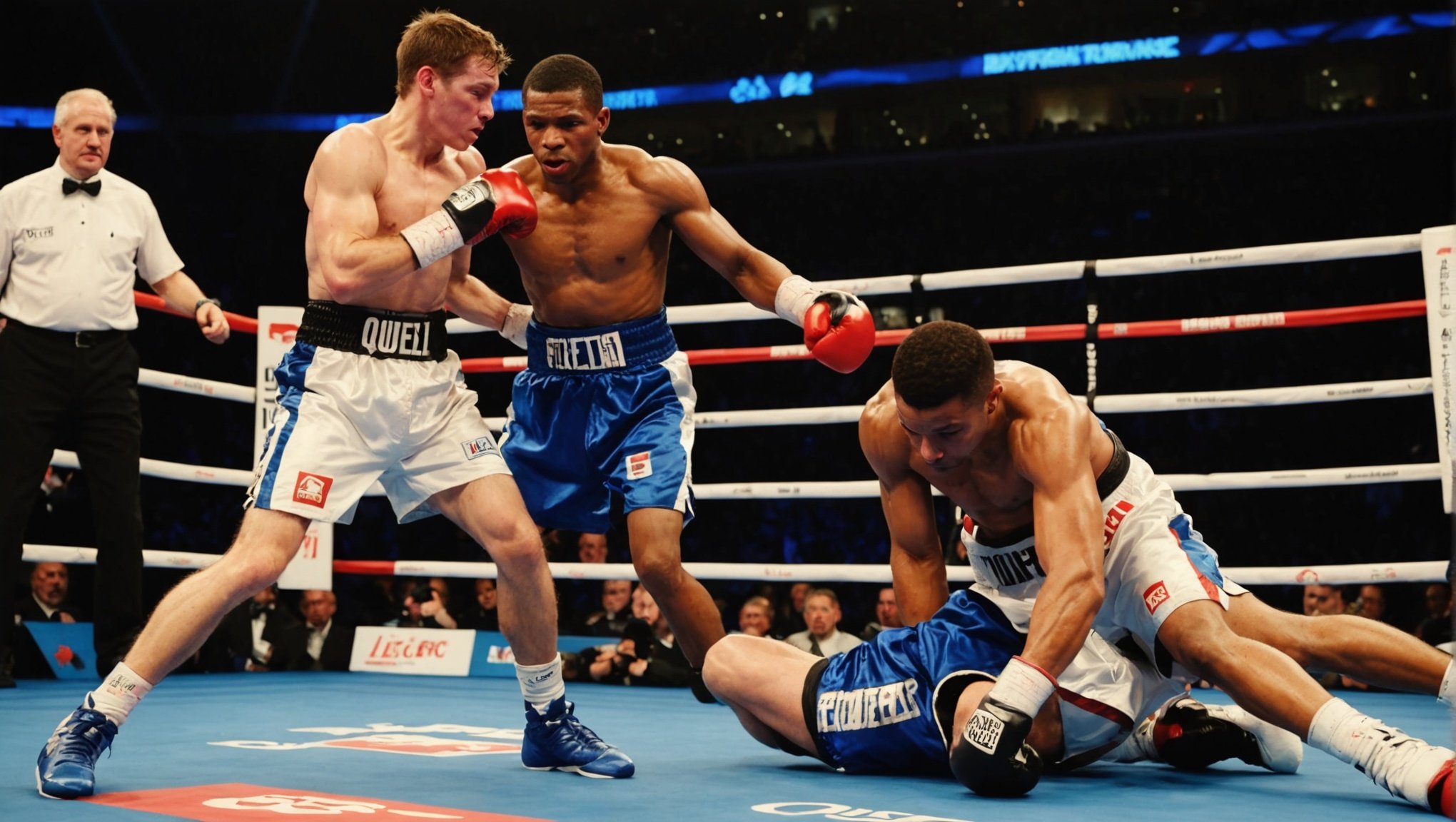Boxing is a sport that requires a tremendous amount of physical and mental resilience. Boxers undergo extensive training routines to enhance their speed, strength, and tactical skills. However, apart from the rigorous training and diet plans, there’s another critical factor that affects the performance of these athletes – sleep. This often overlooked but crucial component of an athlete’s life can significantly affect their performance, recovery, and mental health.
Sleep: The Unseen Training Ally for Boxers
For any athlete, sleep is much more than just a period of rest. It is a time for the body to repair and regenerate, and the mind to consolidate learning and memory. A lack of sleep can lead to fatigue, reduced alertness, and diminished cognitive function. This is particularly relevant for boxers, who rely heavily on these cognitive functions for their performance.
In the same genre : What type of cross-training is most beneficial for professional cyclists?
Several studies available on PubMed and Crossref have established the direct relationship between sleep and athletic performance. These studies suggest that sleep deprivation can reduce an athlete’s reaction time, impair their judgement, and make them more prone to injuries.
For a boxer, these impairments can have severe consequences. Reduced reaction times can affect a boxer’s ability to dodge punches, while impaired judgement can lead to poor tactical decisions during a bout. Furthermore, a higher risk of injuries can lead to a longer recovery time, affecting the boxer’s training schedule and performance in future bouts.
Also read : Master your skills: snowboard courses in avoriaz await!
How Much Sleep Do Boxers Need?
The amount of sleep an athlete needs can vary based on several factors, including their training intensity, age, and overall health. However, most elite athletes aim for at least eight hours of sleep per night, with many aiming for as much as ten hours.
A study published on PubMed found that athletes who increased their sleep to ten hours per night experienced significant improvements in their performance, mood, and alertness. For boxers, these additional hours of sleep can translate into increased speed, better reaction times, and improved tactical decision-making.
It’s worth mentioning that the quality of sleep also plays a crucial role. Boxers should aim for uninterrupted, deep sleep to allow their bodies and minds to fully recover and rejuvenate.
The Impact of Sleep on Mental Health and Recovery
In addition to physical performance, sleep also plays a vital role in an athlete’s mental health and recovery. Chronic sleep deprivation can lead to mood disorders, increased stress, and even depression.
For boxers, who often experience high levels of stress and anxiety, adequate sleep can be an effective strategy to manage these mental health challenges. A good night’s sleep can reduce anxiety levels, improve mood, and boost overall mental wellbeing.
Moreover, sleep supports recovery from training and competition. During deep sleep, the body releases growth hormones that assist in muscle repair and recovery. Without adequate sleep, this recovery process can be hindered, leading to prolonged muscle soreness and delayed healing of injuries.
Sleep Strategies for Boxers
Practising good sleep hygiene can help boxers maximize their sleep quality and duration. Here are some strategies that can be helpful:
- Establish a Regular Sleep Schedule: Aim to go to bed and wake up at the same time every day, even on rest days. This helps regulate the body’s internal clock, promoting better sleep.
- Create a Restful Environment: Make sure the sleep environment is dark, quiet, and cool. Consider using eye shades, ear plugs, or white noise machines if needed.
- Avoid Stimulants: Avoid caffeine and nicotine, particularly in the hours leading up to bedtime.
- Limit Screen Time Before Bed: The blue light emitted by screens can interfere with the body’s production of melatonin, a hormone that regulates sleep.
- Consider a Pre-Sleep Routine: Relaxing activities, such as reading or taking a warm bath, can signal the body that it’s time to sleep.
In conclusion, sleep plays a critical role in a boxer’s performance, recovery, and mental health. A good night’s sleep can provide boxers with the edge they need to excel in their sport. It’s high time that sleep be recognized and prioritized as a fundamental part of a boxer’s training routine.
The Effects of Sleep Deprivation on Boxers’ Mental Toughness
Mental toughness, a crucial asset for both amateur and professional boxers, is often tested by the rigors of the sport. It’s impacted by various factors, and sleep quality is one of them. Sleep deprivation can lead to various mood states such as irritability, depression, and anxiety, which can undermine a boxer’s mental toughness.
One can find articles on PubMed, Google Scholar or Crossref that corroborate the link between sleep and mental health. A study found that sleep-deprived athletes exhibited decreased mood states and increased stress levels compared to their well-rested counterparts.
For a boxer, the link between sleep and mental health is further complicated by the risk of traumatic brain injury. The sport-specific risk of sustaining a traumatic brain injury, combined with inadequate sleep, can lead to long-term mental health complications.
Furthermore, sleep deprivation can reduce an athlete’s resilience and compromise their ability to cope with stress, both crucial elements of mental toughness. Therefore, it’s necessary for boxers to prioritize sleep, given its significant impact on their mental health and toughness.
The Influence of Social Media on Boxers’ Sleep Quality
In the digital age, the impact of social media on an elite athlete’s sleep cannot be ignored. Studies have shown that excessive use of social media can lead to reduced sleep quality.
Boxers, like all athletes, engage with social media for various reasons: staying connected with fans, marketing, learning, and entertainment being some of them. However, the excessive use of these platforms, particularly close to bedtime, can interfere with sleep. The blue light emitted from the devices suppresses the body’s production of melatonin, a hormone that signals the body to sleep, and thus can lead to sleep disruption.
In the current study, boxers who spent more time on social media close to bedtime reported lower sleep quality. As a result, they experienced decreased performance, slower recovery times, and heightened mood states.
To counteract this, boxers can consider implementing strategies such as turning off notifications, setting specific times for social media use, and not using electronic devices at least an hour before bed.
Conclusion: Valuing Sleep in Boxing
In conclusion, in the rigorous world of boxing, sleep should not be overlooked. It plays a key role in an athlete’s performance, recovery, mental health, and overall mental toughness. Amateur boxers and professional boxers alike can greatly benefit from increased sleep quality.
Ultimately, it’s about understanding that sleep is not merely a passive state of rest, but an active process that contributes significantly to a boxer’s success in the ring. As we continue to advance in our understanding of sleep’s role in sports performance, it’s essential that sleep is prioritized and incorporated into a boxer’s long-term training routine. It’s time to lay to rest the old adage of "no pain, no gain" and recognize that "more sleep, more leap" might be the more accurate maxim for the future of boxing.













